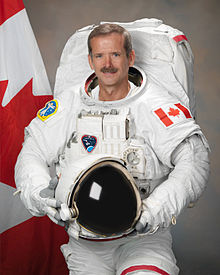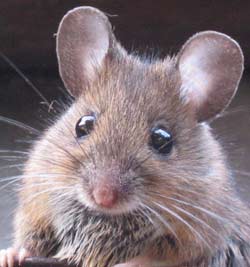 From time to time we come across a few opportunities at a grad level that we’re not necessarily working on ourselves, but we still feel are exiting enough to tell you about. Why are we doing this? Because we’re nice people, that’s why.
From time to time we come across a few opportunities at a grad level that we’re not necessarily working on ourselves, but we still feel are exiting enough to tell you about. Why are we doing this? Because we’re nice people, that’s why.
Tag Archives: science jobs
These grad level opportunities should really interest you.
Commander Chris Hadfield Receives Award from the Lord Mayor of Dublin
 You may remember Commander Chris Hadfield. He’s the Canadian astronaut who spent the last 5 months becoming the world’s latest (and most social media savvy) space celebrity. Achievements unlocked during his stay aboard the International Space Station include a Twitter following of almost 1 million, a popular Tumblr blog and one of the most engaged-with Reddit AmAs (Ask me Anythings) of all time.
You may remember Commander Chris Hadfield. He’s the Canadian astronaut who spent the last 5 months becoming the world’s latest (and most social media savvy) space celebrity. Achievements unlocked during his stay aboard the International Space Station include a Twitter following of almost 1 million, a popular Tumblr blog and one of the most engaged-with Reddit AmAs (Ask me Anythings) of all time.
Cork Scientists Identify Link Between Intestinal Bacteria and Autism
 Scientists at University College Cork have found a link between intestinal bacteria levels and autistic patterns of behaviour. Findings at the Alimentary Pharmabiotic (APC) suggest that mice raised in a germ-free environment spent more time interacting with objects than with other mice – a strong sign of autism. The serotonin system, which regulates mood, can only develop properly if sufficient intestinal bacteria is present.
Scientists at University College Cork have found a link between intestinal bacteria levels and autistic patterns of behaviour. Findings at the Alimentary Pharmabiotic (APC) suggest that mice raised in a germ-free environment spent more time interacting with objects than with other mice – a strong sign of autism. The serotonin system, which regulates mood, can only develop properly if sufficient intestinal bacteria is present.
Genetic Mystery of Irish Potato Famine Solved.
 I’m Currently in the middle of BBC’s fantastic documentary The Story of Ireland, narrated by Fergal Keane. Investigated in one of the episodes are the devastating consequences of the potato blight which caused the Irish Famine in the mid-19th century. Caused by the microorganism, Phytophthora infestans (Latin for ‘plant destroying infestation), the blight destroys the leaves of potato crops causing the potatoes to rot.
I’m Currently in the middle of BBC’s fantastic documentary The Story of Ireland, narrated by Fergal Keane. Investigated in one of the episodes are the devastating consequences of the potato blight which caused the Irish Famine in the mid-19th century. Caused by the microorganism, Phytophthora infestans (Latin for ‘plant destroying infestation), the blight destroys the leaves of potato crops causing the potatoes to rot.
Revolutionary ‘Bladeless’ Wind Generator.
 How does a “windmill” without mechanically moving parts work? This is the question currently being answered by Delft University of Technology (TU Delft) in Holland. The model-EWICON (Electrostatic WInd Energy CONvertor) was designed by Mecanoo architects and uses charged droplets of water to generate electricity.
How does a “windmill” without mechanically moving parts work? This is the question currently being answered by Delft University of Technology (TU Delft) in Holland. The model-EWICON (Electrostatic WInd Energy CONvertor) was designed by Mecanoo architects and uses charged droplets of water to generate electricity.
GlaxoSmithKline States its Commitment to Clinical Trial Transparency
 A couple of months back I wrote an article about Ben Goldacre and his website AllTrials, an online movement dedicated to the registration of all clinical trials and the public availability of all trial results. This week, British pharma giant, GSK (esteemed purveyors of legendary beverages, Lucozade and Ribena) has furthered its commitment to clinical trial transparency since signing up to the AllTrials campaign in February 2013, committing to make its clinical study reports (CSRs) publicly available through its clinical trials register after approval, termination and publication.
A couple of months back I wrote an article about Ben Goldacre and his website AllTrials, an online movement dedicated to the registration of all clinical trials and the public availability of all trial results. This week, British pharma giant, GSK (esteemed purveyors of legendary beverages, Lucozade and Ribena) has furthered its commitment to clinical trial transparency since signing up to the AllTrials campaign in February 2013, committing to make its clinical study reports (CSRs) publicly available through its clinical trials register after approval, termination and publication.
Irish Immunology Specialists, Opsona Therapeautics, Receive 33m Investment.
 A Trinity College Dublin spin-out, Opsona Therapeutics, has received a 33m fund to aid the developemnt of one of its drugs. The drug, OPN-305, which protects the body from rejection of donor kidneys is set to undergo a Phase II clinical trial in the following months where its tolerability, efficacy and safety will be tested.
A Trinity College Dublin spin-out, Opsona Therapeutics, has received a 33m fund to aid the developemnt of one of its drugs. The drug, OPN-305, which protects the body from rejection of donor kidneys is set to undergo a Phase II clinical trial in the following months where its tolerability, efficacy and safety will be tested.
Has the First Malaria Vaccine Been Discovered?
 A fun way to divide a group of trivia enthusiasts is to ask them what the most dangerous animal in the world is. Those who received their formative educations courtesy of childhood favourites such as Jaws or Arachnophobia will probably throw the accolade to the Great White Shark or some breed of eight-legged creepy-crawly. It’s easy to spot the Discovery Channel fans of the group because they will offer up the slightly-less pedestrian Hippopotamus as their answer. Despite their mostly herbivorous diet and jolly, smiling features, Hippos are extremely aggressive and do indeed claim up to 3000 lives per year – more than any other large animal.
A fun way to divide a group of trivia enthusiasts is to ask them what the most dangerous animal in the world is. Those who received their formative educations courtesy of childhood favourites such as Jaws or Arachnophobia will probably throw the accolade to the Great White Shark or some breed of eight-legged creepy-crawly. It’s easy to spot the Discovery Channel fans of the group because they will offer up the slightly-less pedestrian Hippopotamus as their answer. Despite their mostly herbivorous diet and jolly, smiling features, Hippos are extremely aggressive and do indeed claim up to 3000 lives per year – more than any other large animal.
Is the taste of beer intoxicating?
 The lightweights among us might have a neurological excuse for their prompt reaction to alcohol, according to a published study in Neuropsychopharamcology this week. According to the findings, the mere taste of Beer is enough to trigger a buzz in men. The research showed that even a small mouthful of beer – too small to cause direct alcoholic intoxication – prompts a release of the neurotransmitter dopamine in the reward centre of men’s brain. This research has strong implications for our understanding of addiction, especially since this response was found to be stronger in men with close relatives who suffer from alcoholism.
The lightweights among us might have a neurological excuse for their prompt reaction to alcohol, according to a published study in Neuropsychopharamcology this week. According to the findings, the mere taste of Beer is enough to trigger a buzz in men. The research showed that even a small mouthful of beer – too small to cause direct alcoholic intoxication – prompts a release of the neurotransmitter dopamine in the reward centre of men’s brain. This research has strong implications for our understanding of addiction, especially since this response was found to be stronger in men with close relatives who suffer from alcoholism.

